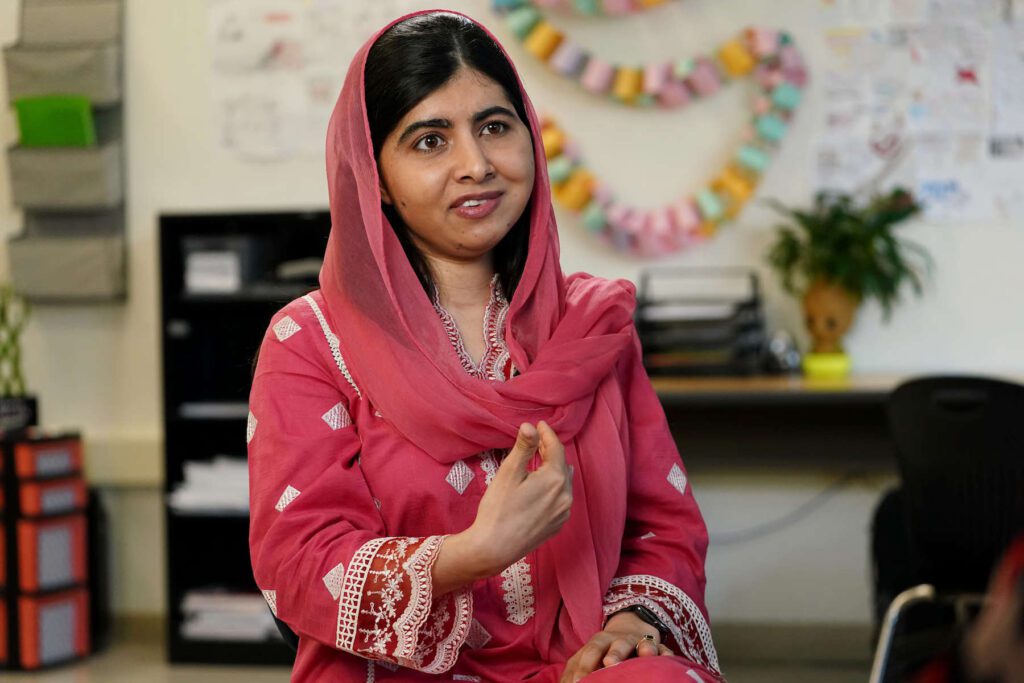Documentary Spotlight: Afghan Women’s Struggle
In Bread and Roses, an impactful documentary executive-produced by Malala Yousafzai, Taranom, an Afghan woman, bravely decides to escape her homeland for safety in Pakistan. In a particularly haunting moment, she asserts, “May history remember that, once upon a time, such cruelty was permitted against the women of Afghanistan.” This poignant statement underscores the dire human rights abuses facing women.
The film, also produced by Jennifer Lawrence and directed by Sahra Mani, draws from cellphone footage of three Afghan women in Kabul, speaking out against the Taliban’s oppressive laws. Taranom’s journey is among those portrayed, along with Sharifa, a former government worker confined to her home, and Zahra, a dentist rallying activists through her practice.
Insights from Malala Yousafzai
In an interview, Yousafzai shared her motivations for participating in the documentary and the escalating crises for women following the Taliban’s takeover in 2021. She emphasized the urgent need for Canada to expedite the resettlement of vulnerable Afghan women still trapped in Afghanistan.
Yousafzai is advocating for international recognition of the Taliban’s actions as gender apartheid, which systematically excludes women from public life. She is petitioning the United Nations to integrate gender apartheid into a Crimes Against Humanity Treaty, ensuring accountability for the Taliban’s oppression.
Connecting Through Activism
How did you get involved with the documentary?
My activism alongside other Afghan women has focused on exposing the Taliban’s oppressive actions—especially their restrictive policies denying women the right to work and education. Recently, I’ve engaged in the gender apartheid campaign, advocating for its recognition in international law to hold the Taliban accountable for their treatment of women.
When I learned about this documentary, which showcased three Afghan women bravely sharing their stories, I felt compelled to participate. Centering Afghan women’s voices is crucial, as the Taliban seeks to silence them, erasing their presence from public life.
Personal Reflections
Did watching the experiences of these women resonate with your own past? Did it trigger any PTSD from your own experiences with the Taliban?
Witnessing the regression of women’s rights in Afghanistan has been emotionally challenging for me. Reflecting on my life at eleven, when the Taliban barred girls from education, is heartbreaking. My own survival after the attack in 2012 was meant to symbolize hope, not a repeat of trauma for others.
Unfortunately, this is the new reality for women and girls in Afghanistan, who face punishment for pursuing education, work, or even basic freedoms like visiting a park without a male escort. It’s absurd and unacceptable.
The Role of Canada
Canada has welcomed many Afghan women since the Taliban’s resurgence, yet calls for more action persist.
Canada is in a pivotal position to support Afghan women’s activism. While welcoming refugees is a commendable step, greater support for women activists living under threat is essential. In a recent meeting with Prime Minister Justin Trudeau, I urged him to elevate Canada’s leadership in codifying gender apartheid and recognized the efforts of Canadian representatives at the UN in advocating for this issue.
The Power of Voice
One scene depicts a woman explaining how fake social media accounts are used to malign her reputation. Have you experienced similar attacks in your activism?
No, but the reality of fake profiles and online harassment is pervasive. The Taliban is now leveraging technology to intimidate and threaten women, something that has evolved since my early activism. It acts as a tool for blackmail and control, contributing to the broader oppression of women.
The Current Situation for Women
What are your thoughts on the recent Taliban decrees banning women’s voices in public and even from hearing each other’s voices?
It’s absolutely ridiculous. The numerous decrees issued by the Taliban primarily restrict women in various aspects of life. Silencing women is deeply disturbing, reflecting their objectified view of women’s rights and dignity.
The documentary serves as a critical platform for Afghan women. Elevating their voices represents resistance against the Taliban’s oppression. By amplifying these stories and images, we aim to empower Afghan women to shape their futures free from Taliban control.


